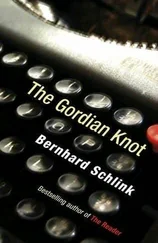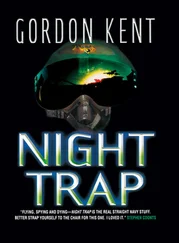All Alan could think was that if it was a terrorist attack they still had time to throw a bomb, that Rose was still in danger. The car shrieked away from the curb, hitting the mirror of a parked van.
Two men were down.
Alan stumbled forward, his left leg striking oddly on the street. As he came to the corner, he saw that the whole front of the café had been shattered by bullets, and he threw himself forward into the café. He bellowed, “ Rose! ”
Two young men were bent over a body. Alan leaned past them, saw that the body was a man’s, and realized that he was still holding the gun. He shoved it in his waistband and went to the second body, clearly a corpse and with a pool of blue-black blood all around it. An older woman. Not Rose. Three other victims were on their feet, one staring at a bloody arm; a woman screamed and screamed; somebody slumped to the floor, his back tracing a red smear down the wall. He smelled gunpowder, blood, excrement.
Then his senses began to return from the overload of the shooting, and he heard the hooting of police sirens and more screaming.
“Alan Craik?” A woman’s voice behind him.
“Rose?” He turned and saw a woman who was definitely not Rose, a tall blond woman with a straight nose and Asiatic cheekbones.
“You are Alan Craik, I think.”
His leg was numb, and he looked down. The heel and sole of his left shoe had been shot away. He sat heavily on the floor, in a litter of broken glass. Reaction, fatigue. The sirens got closer. His foot had been cut by glass, otherwise was untouched, but his whole lower leg was numb. He focused on the woman in front of him. She looked like a wild animal caught between a need for food and a need to flee. His brain seemed to have been numbed, too: “Are you a friend of Rose’s?” he said, hearing the stupidity of it.
“I told them I was your wife so you would come.” Alan’s head snapped back to her, and his right hand moved toward the butt of the pistol in the small of his back. A trap? But the shooters are gone. What is she telling me?
“I must meet with you.”
Alan looked at her. She had neither blood nor glass on her and she looked like the cover of a glamour magazine, except for the fear in her eyes. She seemed to have no reaction to the screaming or the sirens or the blood, as affectless as a photograph, except for those eyes. He pulled himself up by grabbing a table that was puddled with coffee. His brain still seemed unable to make good sense. “Who are you?”
The sirens screamed outside. “Your next liberty port is Naples. Meet me there.”
“Why?”
She was already moving away into the crowd in front of the café. For the first time, she seemed at a loss. Once at the edge of the crowd, however, she stopped, now part of it, not part of the attack.
“Bonner,” she called. Then she was gone.
Bonner? He had to focus. Bonner was the name of the traitor who had got his father killed. Bonner was in a US prison. What did she mean, Bonner ?
Police poured into the ruined café. He could make no sense of it, but his brain was clear enough now for him to know that what the woman had said had flung him back into a security investigation he had believed closed, and there was no way he could tell the Italian cops about it.
For Rose, the new life started when she closed their rented house. She had loved living there, but now she was ready to go to the life she had dreamed of and worked toward for six years—Houston, the Space Center, astronaut training.
“Ready to go?” she said to Mikey, their seven-year-old.
“Let’s go!”
“You ready?” she said to the dog. The big tail banged against a wall.
“Well—let’s go!”
And without a backward glance she piled them into the 4Runner and started for her parents’ house in Utica, New York. The kids and the dog would be left there while she drove to Houston, then camped out in the house they had already bought there. Her children would adapt. They belonged to a happy family, except that every two or three years, one or both parents went to sea. Or into space.
“You feel abused?” she said to Mikey.
“I’m busy.” He was playing a computer game.
“That’s what I thought.”
The dog put his head over the seat from the back and licked her hair.
“You feel abused?” she said.
The dog wiggled all over.
“That’s what I thought.”
The trip was long, and Mikey got cranky, then slept; the baby howled; the dog threw himself on the floor and panted and gasped and whimpered. On and on, through Massachusetts and into New York, stopping to buy junk food and to piss and to walk the dog, then west along the Thruway and at last, as it was getting dark, to the little house in the Italian streets where she had grown up. Mikey, awake again, was eager.
“The first thing your grandmother will say is, ‘You’re later than you said.’”
“Grampa will tell her to shut up.”
Kids hear a lot.
“You’re late,” her mother said. “You said seven o’clock.” They kissed. “Dinner’s ruint,” her mother said.
“How’s my girl?” her father shouted, embracing her. He was a small man, wiry even in old age, a fair singer and a great ballroom dancer. “Shut up, Marie, she drove all this way, she done great.” He began to sing, Rosie, she is my posy—
“I’m starved, Ma,” she told her mother. “Just starved.” She wasn’t, but she knew her mother wanted to feed her. Singing, her father took her in his arms and began to dance her around the driveway. Rosie, she is my joy—
Rose winked at her father, and they went into the house with their arms around each other’s waist, Mikey holding his mother’s hand. It was only after another ten minutes of shouting and trading news that her mother said, “Oh, your father forgot, you got a phone call! It’s his business to tell you, I guess, but he forgot.” She drew herself up. “Not bad news, I hope.”
“Nah, nah, Jesus H. Christ, Marie! Give her a break, she just drove three hundred miles!” He turned to Rose.
“It’s some goddam military Mickey Mouse, I’d of told you tomorrow. Probably you didn’t dot the i on an exam paper.”
“She better call,” her mother said.
“Call tomorrow. Tonight’s for fun!”
“I’d of had her call the moment she got here.”
“Goddamit, Marie—”
Rose was laughing at them, because nothing bad could happen and she knew her father was right; it was some Mickey-Mouse nothing. Still, she knew her mother wouldn’t let it go until she called, so she asked where the number was and her father said by the phone. As soon as she saw the number, she knew it was her detailer’s, and her confidence that nothing bad could happen gave a little hiccup. There was a second number, as well, with “home” written next to it in her father’s precise writing.
Her confidence stumbled. Why did he want her to call at home? Or was that simply something that her father, a thorough man who had been a machinist and always worried about details, had asked for?
There was no privacy in that house. Even her father believed that if you needed privacy, you’d done something bad. She walked out to her car and got her cellphone from a box of office stuff that she’d shoved in the back, and she dialed the detailer’s home number from there, leaning her buttocks against the back end of the car and looking up and down the twilit, familiar street.
“Anders,” the male voice said.
“Hi, uh,—this is Lieutenant-Commander Siciliano. You called me?” Letting her voice go up in that crappy, little-girl way that women affected now. Christ, what was wrong with her? “Something wrong?” she said, not able to keep from saying it, not even able now to keep the anxiety out of her voice.
Читать дальше












